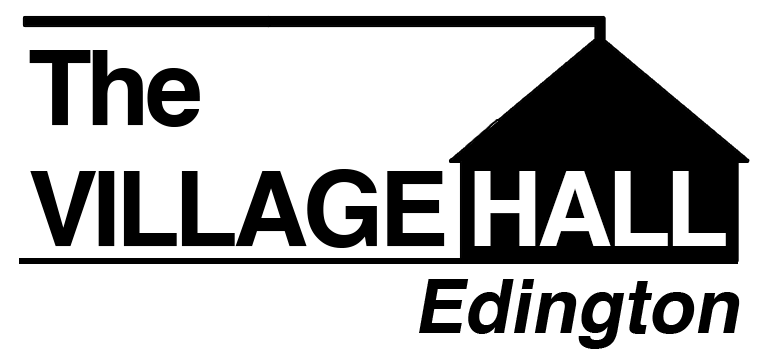Financial Policy for The Village Hall, Edington
1. The management committee trustees will manage the assets of the charity in accordance with the Edington Village Hall Trust Deed dated 16th February 1978.
2. The trustees will keep the buildings and other property of the charity in repair and insured with a reputable Insurance Company on an ‘All Risks’ basis covering the property’s full rebuild value; the sums insured shall be reviewed at each policy renewal.
3. Financial records will be kept to ensure that Edington Village Hall meets its legal and other obligations under Charity Law, Revenue and Customs and common law.
4. The financial year will end on the last day of June and accounts for each financial year will be drawn up and approved by the trustees prior to being presented to the Annual General Meeting held in October.
5. The accounts will be independently examined by an auditor or examiner of accounts appointed by the AGM.
6. The trustees will approve an income and expenditure budget prior to the start of each financial year and monitor financial performance at every monthly meeting of the Management Committee.
7. Any sum of cash at any time belonging to the charity and not needed as a balance for working purposes shall be invested with the CCLA.
8. The trustees shall determine the extent and nature of reserves designated as Restricted Funds.
9. All funds will be held in accounts in the name of Edington Village Hall at such banks and on such terms as the trustees shall decide. All payments made shall require the signatures of two of the trustees authorised by minute of a Committee Meeting or through email authorisation for exceptional payments required before the next committee meeting.
10. The treasurer shall present a financial report to every meeting of the trustees: the format and content of the report to be decided by the trustees.
11. All expenditure shall be properly authorised and documented; all income shall be paid into the bank without delay.
12. The trustees will undertake a financial risk assessment of all trust activities and review it annually.
Financial Procedures
1) Financial Records
The following records shall be kept up to date by the treasurer:
a) A cashbook analysing all the transactions in the Edington Village Hall bank accounts.
b) A petty cash book if cash payments are being made.
2) Payment Procedure
a) All payments should be made through Internet banking where possible. Cheque and debit card payments may be used if required due to exceptional circumstances.
b) Internet banking users must be committee members with payment authorisation limits defined and approved by the management committee.
c) The treasurer will be responsible for holding the cheque books (unused and partly used cheque books) which should be kept under lock and key.
d) Blank cheques will NEVER be signed.
e) The relevant payee’s name will always be inserted on the cheque before signature and the cheque stub will always be properly completed.
f) No cheques/payments should be signed/made without original documentation (see below)
3) Income Procedure
a) All income will be paid into the bank without deduction
b) Cash is to be counted by the person collecting it and placed in a bag with a pay-in slip showing source, date, amount and signature of collector; the cash to be handed to the treasurer or other designated committee representative who should count the cash in the presence of the collector (or other person if collector not present) and confirm the amount. Any cash kept on the Hall premises will be locked in the secure safe.
c) Hiring agreement forms showing conditions of hire, date, purpose of hire, and total due must be signed by the hirer on booking. If requested an invoice will be given to the hirer with copy to treasurer who will collect the outstanding balance and account for the income.
4) Payment Documentation
a) Every payment out of the bank accounts will be evidenced by an original invoice.
b) In exceptional circumstances where an internet payment is not made, the cheque signatory should ensure that it is referenced with Cheque number; Date cheque drawn; Amount of cheque; Who signed the cheque.
b) The only exceptions to cheques not being supported by an original invoice would be for such items as advanced booking fees for a future course, deposit for a venue, VAT, etc. Here other supporting documentation (e.g. confirmation of purchase / booking) will be kept.
c) Any staff appointments/departures will be authorised by the trustees, minuting the dates and salary level. Similarly, all changes in hours and variable payments such as overtime, etc, will be authorised by the trustees.
d) Petty cash will always be maintained on the imprest system where by an Officer is entrusted with a float as agreed by the trustees. When that is more or less expended, a cheque will be drawn for sufficient funds to bring up the float to the agreed sum, the cheque being supported by a complete set of expenditure vouchers, totalling the required amount, analysed as required.
e) Expenses/allowances. Edington Village Hall encourages reimbursement of expenditure paid for personally by staff or trustees on behalf of the charity, providing: Fares are evidenced by tickets; Other expenditure is evidenced by original receipts; Car mileage is based on local authority scales; No cheque signatory signs for the payment of expenses to themselves.
This policy will be reviewed annually at meeting after AGM
Approved by Management Committee
